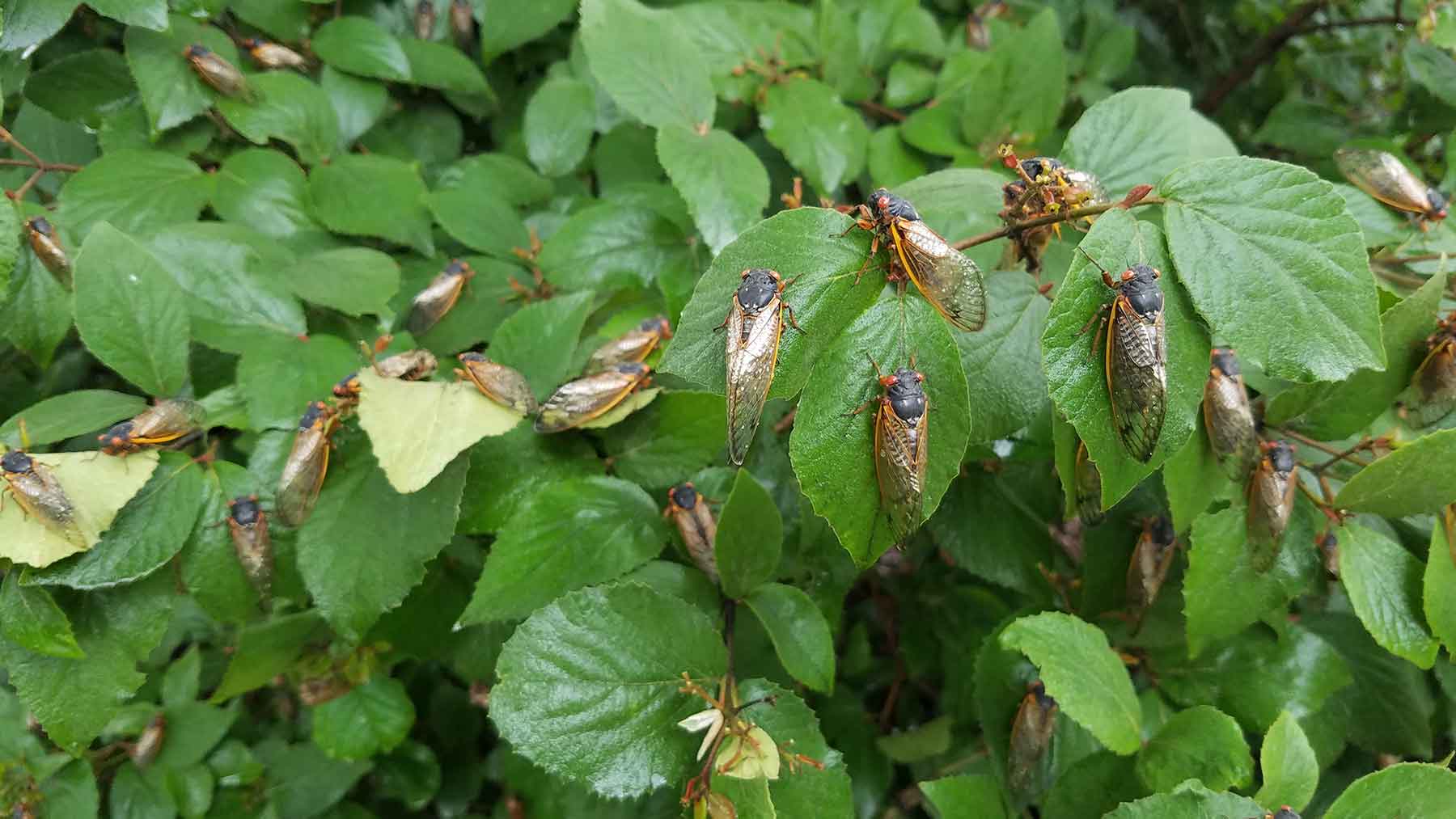Cicadas bugging you? You’re not alone. Read these tips to dial down your anxiety

The Brood X cicadas have started emerging from the ground and along with it, anxiety over the big-eyed, noisy insect. Just the thought of billions of cicadas tunneling their way up to the surface is enough to seriously creep out people – some to the point where they won’t go in their backyard or to a park.
Fear of insects, known as entomophobia, is one of the most common phobias.
A phobia is an intense, irrational fear of a specific object or situation. This fear creates an immediate anxiety response that for some is so crippling that it impairs their daily functioning. Responses include racing heart, shortness of breath, chest pain and an immediate desire to escape from the situation. Every year about 9% of adult Americans experience a specific phobia with some having multiple phobias at the same time, according to the National Institute of Mental Health. Phobias happen more frequently in women than men (12.2% vs. 5.8%). There are different types of phobias, including natural/environmental (heights, water), injury (dentist, injections), animal (dogs, insects) and situational (vomiting, loud sounds).
Is anxiety normal?
While we often think of anxiety as an unpleasant experience, it plays an important role in our lives. Whenever we experience something strange or novel in our environments, it’s appropriate and normal for our brains to enhance our attention to respond. But if you have an immediate and significant response that impacts your daily life, then you’re likely suffering from a phobia and may need professional mental health treatment. There are a variety of effective, targeted therapies that can help. One is called exposure and response prevention, in which patients are exposed to the feared object initially for a very short time. The exposure time is gradually increased, allowing the brain to become de-sensitized to the feared object so patients can tolerate it in their daily lives. For some patients, anxiety medication can help in addition to targeted therapies.
Cicada coping tips
The Brood X cicadas emerge every 17 years and they’re only with us for about six weeks. That means that while your anxiety is very real, it will be short lived. Re-framing the arrival of Brood X as a rare and interesting experience can decrease anxiety about it. My kids and I have spent some time learning about the amazing life cycle of the cicada and its evolutionary adaptations. This has helped my kids be more curious and less fearful of them. There’s also an app called Cicada Safari, which has additional information about the bugs as well as a real-time map of cicada sightings.
Cut down on any anticipatory anxiety in seeing cicadas by engaging in anxiety-reduction techniques such as deep-breathing, distraction and meditation. Focus on the fact that while these bugs are big, they’re harmless to humans and not interested in us. They won’t bite or sting us and don’t carry any diseases. Before you know it, they’ll be gone, along with your worries.
Katherine Brownlowe is an assistant professor in the departments of neurology and psychiatry at The Ohio State University College of Medicine and is an attending neuropsychiatrist at Ohio State Wexner Medical Center’s Neurological Institute.




